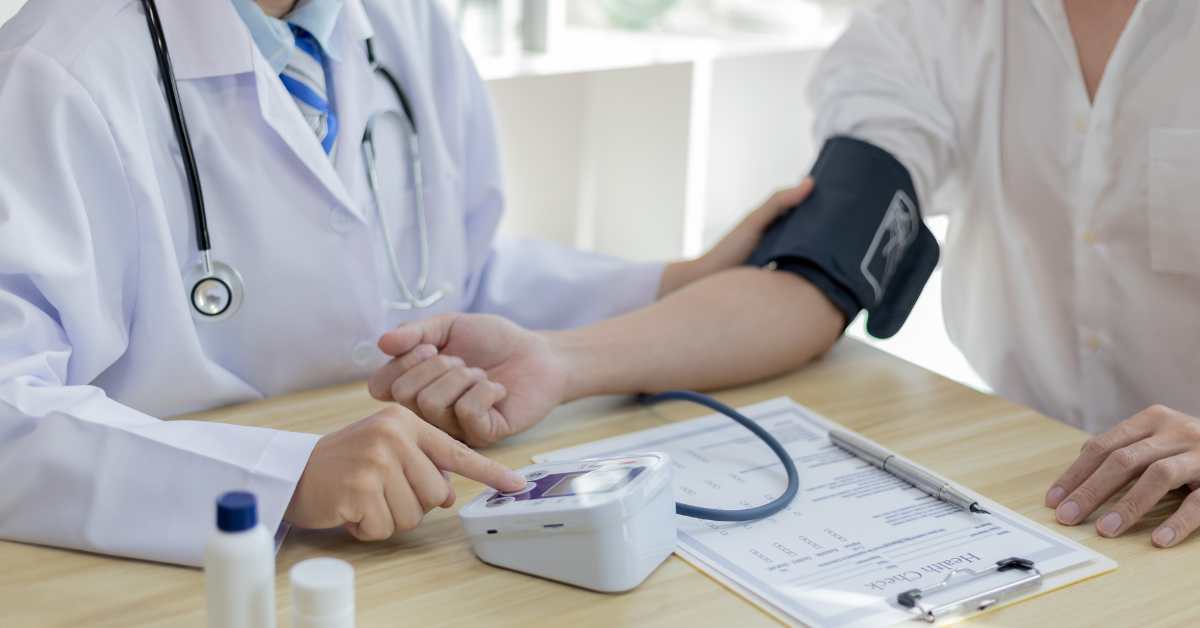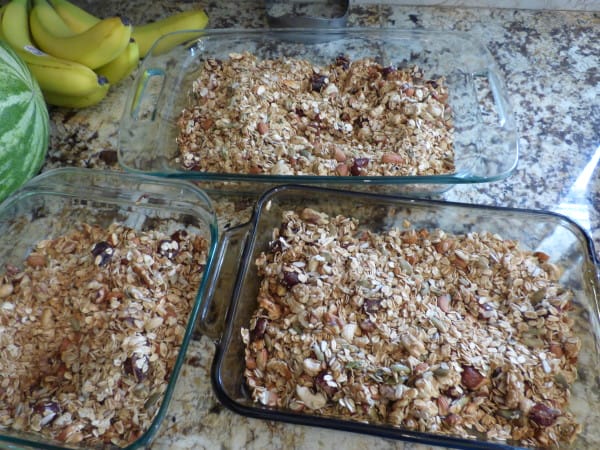That sudden wave of irritability, brain fog, or “hangry” feeling is often a sign that you’re on a blood sugar rollercoaster. If you regularly experience energy crashes or cravings, small dietary and lifestyle shifts may help you feel more stable.
In this article, we’ll explore how blood sugar regulation works, why stable blood sugar is important for mood and health, and the best strategies to maintain steady energy levels throughout the day.
Note: This article is intended for people who do not have diabetes or other diagnosed blood sugar disorders. If you have a medical condition that affects blood sugar regulation, consult with a healthcare professional before making dietary or lifestyle changes.
What Is Blood Sugar Regulation, and Why Does It Matter?
Blood sugar, or glucose, is the body’s main source of energy, and the body works continuously to keep glucose levels within a stable range—to maintain homeostasis (1). When glucose levels rise, the body releases insulin to help transport glucose into cells for energy or storage. When levels drop low, the body signals the release of glucagon, which prompts the liver to release stored glucose (2). This process is the body’s innate method of maintaining energy balance.
Factors like stress (3), undereating (4), meals high in refined carbohydrates or sugary foods (5), and lack of sleep (6) can all disrupt this balance, potentially leading to excess insulin production, blood sugar crashes, increased cravings, moodiness, and more.
As busy parents, it can be easy to fall into skipping breakfast, running on caffeine, and living off our kids leftover PB&J crusts! I’ve been there, too! But that routine is a recipe for blood sugar swings and losing our patience… And it’s not just us parents, kids can get hangry, too!
To learn more about nutrition, read this article: The Basics Of Anti-Inflammatory Eating For The Whole Family

A Complete Breakfast Sets The Scene for A Day of Balanced Blood Sugar
Studies have shown that eating a well-balanced breakfast helps regulate blood sugar throughout the day (7,8). A high-protein breakfast has been linked to improved insulin sensitivity throughout the day (9).
Skipping breakfast, on the other hand, can lead to higher blood sugar spikes after lunch and dinner (8). This means that what you eat in the morning can influence your metabolism for the following 12–24 hours.
Aim to include at least 20 grams of protein in your breakfast, plus fiber and some healthy fats.
Examples of balanced breakfasts include:
- Scrambled eggs with sautéed spinach and avocado
- Whole milk Greek yogurt with chia seeds, walnuts, and a serving of berries
- A smoothie made with whole milk, grass-fed whey protein, berries, flaxseeds, and almond butter.
Another tip: Caffeine can temporarily increase cortisol levels (10), which in turn can raise blood sugar (11). By eating a nutrient-dense breakfast first, you can slow the absorption of caffeine and help buffer this effect.
For more healthy recipes click here!

Fiber For Blood Sugar Control
Dietary fiber plays a role in blood sugar regulation by slowing digestion and, as such, slowing glucose absorption (12). This is why complex carbohydrates spike our blood sugar less than simple carbohydrates (13).
Aim for at least 25–30 grams of fiber per day (14) to support steady blood sugar levels and healthy digestion.
Tip: Snack on fiber-rich raw veggie crudités while cooking dinner to help meet your daily fiber intake and to support steady glucose uptake (15).
To learn more about dietary fiber, read this article: Does Blending Fruit Destroy Fiber? Plus Two Kid-Friendly Smoothie Recipes
When You Eat Impacts Your Blood Sugar Regulation
Beyond what you eat, when you eat also plays a role in blood sugar regulation. Research suggests that regular meal timing helps maintain insulin sensitivity and prevents glucose fluctuations (16), and that consuming the majority of daily calories earlier in the day and having an early dinner is linked to improved glucose metabolism and better insulin response (17).
As a final note on meal timing, I am a big believer in a 70/30 approach, and in my home, we certainly enjoy a treat every now and then. A general best practice when it comes to enjoying a treat is to eat it as a dessert after a complete meal. This is because eating sweets on an empty stomach can lead to a rapid glucose spike (sugar high) and crash, but when treats are consumed at the end of a balanced meal, the presence of protein, fat, and fiber help slow glucose absorption, reducing the impact on blood sugar levels.
Apple Cider Vinegar and Ginger For Blood Sugar Balance
Apple cider vinegar slows carbohydrate breakdown (18), and ginger supports a healthy insulin response (19). When combined, these two natural ingredients form the base of a tasty pre-dinner drink that supports blood sugar balance and aids in healthy digestion.
Dr. Green Mom’s Ginger and Apple Cider Vinegar Mocktail for Balanced Blood Sugar
Serve this tasty apple cider vinegar aperitif in a wine glass with ice and a straw, sip slowly, and enjoy! Drink 10–15 minutes before meals to support digestion and maintain steady blood sugar levels.
⏲️ Prep Time
5 minutes
Yields
1 serving
Ingredients
- 2 teaspoons Ginger-Ease™
- 1–2 teaspoons unfiltered raw apple cider vinegar (start with 1 tsp and add up to 2 tsp to taste!)
- 8–12 oz filtered or sparkling water
- Optional squeeze of lemon or a few drops of stevia
Directions
- Mix all ingredients in a glass and stir to combine.
Summary
Maintaining stable blood sugar is important for steady energy, balanced mood, and long-term metabolic health. Spikes and crashes can result from dietary factors, stress, lack of sleep, and more.
Some good habits that promote balance include starting the day with a protein-rich breakfast, eating meals at consistent times, and including plenty of protein, fiber and healthy fats in each meal to slow glucose absorption. Dr. Green Mom’s Ginger and Apple Cider Vinegar Mocktail is a tasty way to prepare the body for a balanced reaction to a meal and to help keep energy levels stable throughout the day.
References:
- Hantzidiamantis PJ, Awosika AO, Lappin SL. Physiology, Glucose. [Updated 2024 Apr 30]. In: StatPearls [Internet]. Treasure Island (FL): StatPearls Publishing; 2025 Jan-. Available from: https://www.ncbi.nlm.nih.gov/books/NBK545201/
- Nakrani MN, Wineland RH, Anjum F. Physiology, Glucose Metabolism. [Updated 2023 Jul 17]. In: StatPearls [Internet]. Treasure Island (FL): StatPearls Publishing; 2025 Jan-. Available from: https://www.ncbi.nlm.nih.gov/books/NBK560599/
- Vedantam D, Poman DS, Motwani L, Asif N, Patel A, Anne KK. Stress-Induced Hyperglycemia: Consequences and Management. Cureus. 2022 Jul 10;14(7):e26714. doi: 10.7759/cureus.26714. PMID: 35959169; PMCID: PMC9360912.
- Koffler M, Kisch ES. Starvation diet and very-low-calorie diets may induce insulin resistance and overt diabetes mellitus. J Diabetes Complications. 1996 Mar-Apr;10(2):109-12. doi: 10.1016/1056-8727(94)00077-8. PMID: 8777329.
- Sanders LR, Hofeldt FD, Kirk MC, Levin J. Refined carbohydrate as a contributing factor in reactive hypoglycemia. South Med J. 1982 Sep;75(9):1072-5. doi: 10.1097/00007611-198209000-00011. PMID: 7123327.
- Tsereteli N, Vallat R, Fernandez-Tajes J, Delahanty LM, Ordovas JM, Drew DA, Valdes AM, Segata N, Chan AT, Wolf J, Berry SE, Walker MP, Spector TD, Franks PW. Impact of insufficient sleep on dysregulated blood glucose control under standardised meal conditions. Diabetologia. 2022 Feb;65(2):356-365. doi: 10.1007/s00125-021-05608-y. Epub 2021 Nov 30. PMID: 34845532; PMCID: PMC8741723.
- Tsereteli N, Vallat R, Fernandez-Tajes J, Delahanty LM, Ordovas JM, Drew DA, Valdes AM, Segata N, Chan AT, Wolf J, Berry SE, Walker MP, Spector TD, Franks PW. Impact of insufficient sleep on dysregulated blood glucose control under standardised meal conditions. Diabetologia. 2022 Feb;65(2):356-365. doi: 10.1007/s00125-021-05608-y. Epub 2021 Nov 30. PMID: 34845532; PMCID: PMC8741723.
- Ogata H, Kayaba M, Tanaka Y, Yajima K, Iwayama K, Ando A, Park I, Kiyono K, Omi N, Satoh M, Tokuyama K. Effect of skipping breakfast for 6 days on energy metabolism and diurnal rhythm of blood glucose in young healthy Japanese males. Am J Clin Nutr. 2019 Jul 1;110(1):41-52. doi: 10.1093/ajcn/nqy346. PMID: 31095288.
- Park YM, Heden TD, Liu Y, Nyhoff LM, Thyfault JP, Leidy HJ, Kanaley JA. A high-protein breakfast induces greater insulin and glucose-dependent insulinotropic peptide responses to a subsequent lunch meal in individuals with type 2 diabetes. J Nutr. 2015 Mar;145(3):452-8. doi: 10.3945/jn.114.202549. Epub 2014 Dec 24. PMID: 25733459; PMCID: PMC6619673.
- Lovallo WR, Whitsett TL, al’Absi M, Sung BH, Vincent AS, Wilson MF. Caffeine stimulation of cortisol secretion across the waking hours in relation to caffeine intake levels. Psychosom Med. 2005 Sep-Oct;67(5):734-9. doi: 10.1097/01.psy.0000181270.20036.06. PMID: 16204431; PMCID: PMC2257922.
- Hucklebridge FH, Clow A, Abeyguneratne T, Huezo-Diaz P, Evans P. The awakening cortisol response and blood glucose levels. Life Sci. 1999;64(11):931-7. doi: 10.1016/s0024-3205(99)00019-3. PMID: 10201642.
- Giuntini EB, Sardá FAH, de Menezes EW. The Effects of Soluble Dietary Fibers on Glycemic Response: An Overview and Futures Perspectives. Foods. 2022 Dec 6;11(23):3934. doi: 10.3390/foods11233934. PMID: 36496742; PMCID: PMC9736284.
- Holesh JE, Aslam S, Martin A. Physiology, Carbohydrates. [Updated 2023 May 12]. In: StatPearls [Internet]. Treasure Island (FL): StatPearls Publishing; 2025 Jan-. Available from: https://www.ncbi.nlm.nih.gov/books/NBK459280/
- McKeown NM, Fahey GC Jr, Slavin J, van der Kamp JW. Fibre intake for optimal health: how can healthcare professionals support people to reach dietary recommendations? BMJ. 2022 Jul 20;378:e054370. doi: 10.1136/bmj-2020-054370. PMID: 35858693; PMCID: PMC9298262.
- Kim HK, Nanba T, Ozaki M, Chijiki H, Takahashi M, Fukazawa M, Okubo J, Shibata S. Effect of the Intake of a Snack Containing Dietary Fiber on Postprandial Glucose Levels. Foods. 2020 Oct 20;9(10):1500. doi: 10.3390/foods9101500. PMID: 33092177; PMCID: PMC7589548.
- Leung GKW, Huggins CE, Bonham MP. Effect of meal timing on postprandial glucose responses to a low glycemic index meal: A crossover trial in healthy volunteers. Clin Nutr. 2019 Feb;38(1):465-471. doi: 10.1016/j.clnu.2017.11.010. Epub 2017 Nov 22. PMID: 29248250.
- BaHammam AS, Pirzada A. Timing Matters: The Interplay between Early Mealtime, Circadian Rhythms, Gene Expression, Circadian Hormones, and Metabolism-A Narrative Review. Clocks Sleep. 2023 Sep 6;5(3):507-535. doi: 10.3390/clockssleep5030034. PMID: 37754352; PMCID: PMC10528427.
- Salbe AD, Johnston CS, Buyukbese MA, Tsitouras PD, Harman SM. Vinegar lacks antiglycemic action on enteral carbohydrate absorption in human subjects. Nutr Res. 2009 Dec;29(12):846-9. doi: 10.1016/j.nutres.2009.10.021. PMID: 19963157.
- Zhu, J., Chen, H., Song, Z., Wang, X., & Sun, Z. (2018). Effects of Ginger (Zingiber officinale Roscoe) on Type 2 Diabetes Mellitus and Components of the Metabolic Syndrome: A Systematic Review and Meta-Analysis of Randomized Controlled Trials. Evidence-Based Complementary and Alternative Medicine, 2018, 1–11. https://doi.org/10.1155/2018/5692962


